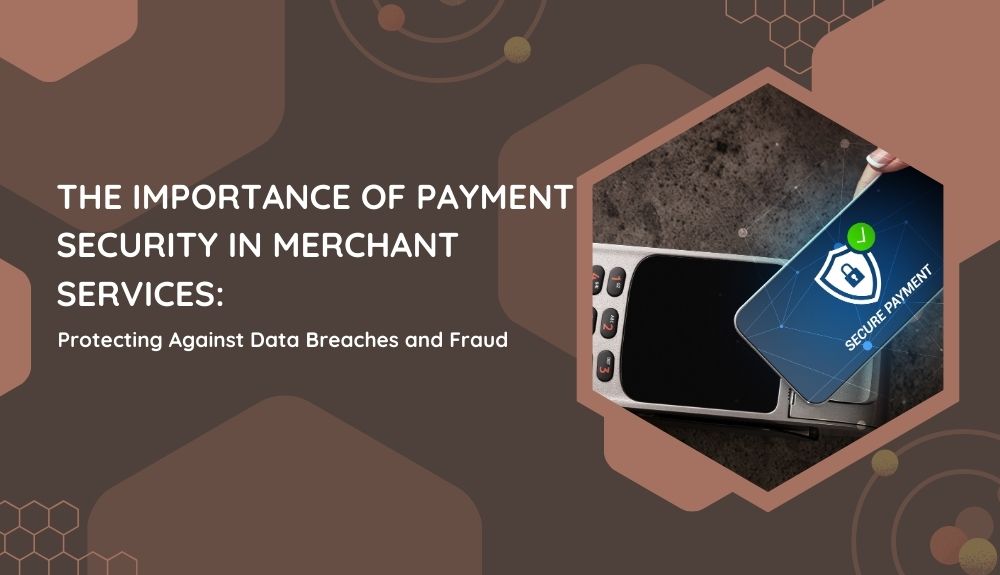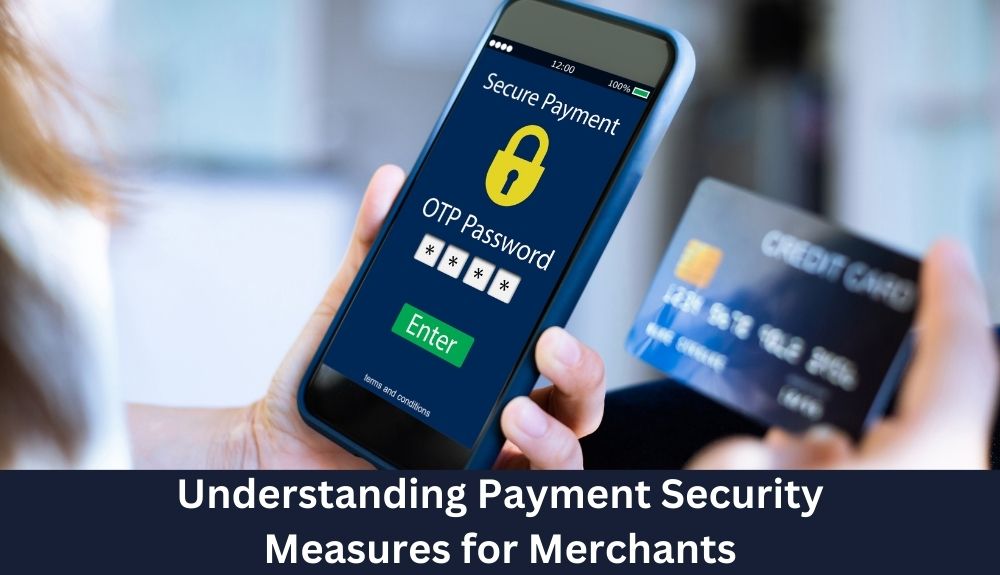
By max February 15, 2024
Introduction to Merchant Services and Payment Security
Welcome to the world of merchant services, where businesses of all sizes come together to make seamless transactions and keep our economy moving forward. In this digital age, payment security has become a paramount concern for merchants as they navigate through the ever-evolving landscape of data breaches and fraud. It’s no longer just about providing excellent products or services; it’s about safeguarding sensitive information and maintaining trust with customers. So today, we delve into the importance of payment security in merchant services, exploring how it protects against data breaches and fraud while keeping businesses and consumers safe from harm. Get ready to dive deep into the fascinating world where technology meets commerce!
The Rising Threat of Data Breaches and Fraud in the Digital Age
In today’s digital age, the threat of data breaches and fraud looms larger than ever before. With more businesses operating online and consumers relying on electronic payments, cybercriminals have found new avenues to exploit vulnerabilities in payment security systems.
Data breaches can have devastating consequences for both businesses and consumers. Not only do they result in financial losses, but they also erode trust in the affected company. Consumers are becoming increasingly aware of these risks and are less likely to engage with businesses that have a history of compromised security.
The methods employed by hackers are constantly evolving, making it essential for merchants to stay one step ahead. Cybercriminals use sophisticated techniques such as phishing scams, malware attacks, and ransomware to gain unauthorized access to sensitive customer information.
Small businesses are particularly vulnerable as they may lack the resources or expertise needed to implement robust security measures. This puts them at greater risk of being targeted by hackers seeking easy targets with weak defenses.
To combat this growing menace, merchants must invest in comprehensive payment security measures. These include encryption technologies, multi-factor authentication protocols, tokenization processes, and secure payment gateways. By implementing these tools effectively, merchants can minimize their vulnerability to data breaches and protect their customers’ personal information from falling into the wrong hands.
Compliance requirements and regulations play a crucial role in ensuring payment security across industries. Merchants must adhere to industry standards such as Payment Card Industry Data Security Standard (PCI DSS) compliance to safeguard customer data effectively.
However, technological solutions alone cannot guarantee complete protection against data breaches; education is equally vital. Employees need thorough training on how to recognize potential threats like phishing emails or suspicious websites that could compromise security.
Impact on Small Businesses and Consumers
Small businesses and consumers are significantly impacted by data breaches and fraud in the digital age. The consequences of these security breaches can be devastating, both financially and reputationally.
For small businesses, a data breach can result in direct financial losses from stolen credit card information or fraudulent transactions. This can lead to increased chargebacks and fines, which can severely impact cash flow and profitability. Moreover, the damage to a business’s reputation may cause customers to lose trust and choose competitors instead.
On the other hand, consumers face potential identity theft or unauthorized use of their payment information when companies fail to protect their data adequately. The repercussions for individuals include financial loss, damaged credit scores, and even emotional distress.
In addition to immediate impacts, the long-term effects on small businesses and consumers cannot be ignored. Small businesses that suffer from data breaches may struggle to recover financially due to legal costs associated with resolving disputes or compensating affected customers. Similarly, consumers may find it challenging to regain control over their compromised personal information.
Addressing payment security is crucial for safeguarding small businesses’ viability as well as protecting consumer confidence in online transactions. By implementing robust security measures such as encryption technologies and regularly monitoring for suspicious activities merchants can mitigate risks associated with data breaches while cultivating trust among their customer base.
Understanding Payment Security Measures for Merchants

As a merchant in today’s digital age, understanding payment security measures is crucial to protect your business and customers from data breaches and fraud. With the rise of online transactions, it has become increasingly important to have robust security protocols in place.
One of the first steps in ensuring payment security is implementing encryption technology. This involves encoding sensitive information such as credit card numbers during transmission, making it nearly impossible for hackers to access or decipher the data. By using secure sockets layer (SSL) certificates, merchants can create a secure connection between their website and customers’ browsers.
Another essential measure is tokenization. This process replaces actual credit card details with unique tokens that are only recognized within a specific system. Tokenization ensures that even if hackers gain access to the database, they will not be able to extract any valuable information.
Two-factor authentication is another effective method for enhancing payment security. By requiring users to provide two forms of identification before accessing an account or completing a transaction, merchants can add an extra layer of protection against unauthorized access.
Regularly updating software and patches on all systems used for processing payments is also vital. These updates often include critical security fixes that address vulnerabilities discovered by developers or researchers.
Additionally, merchants should consider adopting PCI DSS compliance standards. The Payment Card Industry Data Security Standard provides guidelines on how businesses should handle customer payment information securely.
Educating employees about best practices for payment security is equally important. By training staff members on identifying potential threats such as phishing emails or suspicious activities, businesses can minimize the risk of internal breaches caused by human error.
In conclusion: Understanding and implementing proper payment security measures are paramount for every merchant operating in today’s digital landscape. Taking proactive steps to safeguard customer data not only protects your reputation but also builds trust among consumers who value their privacy and peace of mind when conducting online transactions.
Compliance Requirements and Regulations
Compliance requirements and regulations play a crucial role in ensuring payment security for merchants. With the increasing threat of data breaches and fraud, it is essential for businesses to adhere to these measures in order to protect their customers’ sensitive information.
One important compliance requirement is Payment Card Industry Data Security Standard (PCI DSS) certification. This set of standards ensures that merchants handle cardholder data securely, reducing the risk of unauthorized access or theft. By maintaining PCI DSS compliance, businesses can demonstrate their commitment to protecting customer data.
In addition to PCI DSS, there are various other industry-specific regulations that merchants need to follow depending on their location and type of business. For example, the General Data Protection Regulation (GDPR) imposes strict guidelines on how companies handle personal data within the European Union.
These compliance requirements not only help prevent data breaches but also serve as a legal obligation for businesses. Non-compliance can result in hefty fines and damage to reputation.
To ensure adherence to these regulations, merchants should implement robust security measures such as encryption, tokenization, and secure network infrastructure. Regular audits and vulnerability assessments are also necessary to identify any potential weaknesses in existing systems.
Furthermore, staying up-to-date with evolving compliance standards is crucial as technology advances and new threats emerge. Merchants must stay vigilant by keeping track of any changes or updates from regulatory bodies.
By meeting compliance requirements and adhering to regulations, merchants can instill trust among their customers while safeguarding against potential financial losses due to fraud or data breaches.
Tools and Strategies for Protecting Against Data Breaches
In today’s digital landscape, data breaches have become a serious concern for businesses of all sizes. The repercussions of such breaches can be devastating, not only resulting in financial losses but also compromising the trust of customers. Therefore, it is crucial for merchants to implement robust tools and strategies to protect against data breaches.
One essential tool for safeguarding payment security is encryption. By encrypting sensitive customer information, merchants make it virtually impossible for hackers to access and decipher the data. This ensures that even if a breach occurs, the stolen information remains useless to cybercriminals.
Another effective strategy is implementing multi-factor authentication (MFA). MFA adds an additional layer of protection by requiring users to provide multiple forms of verification before accessing sensitive systems or making transactions. This greatly reduces the risk posed by stolen credentials or unauthorized access attempts.
Regularly updating software and patches is also critical in maintaining payment security. Cyber threats are constantly evolving, so keeping systems up-to-date with the latest security measures helps prevent vulnerabilities from being exploited.
Implementing tokenization can further enhance payment security. Tokenization replaces actual credit card numbers with unique tokens during transactions, reducing the risk associated with storing sensitive customer information.
Additionally, conducting regular vulnerability assessments and penetration testing helps identify potential weaknesses within a merchant’s system infrastructure. By proactively identifying and addressing these vulnerabilities, businesses can stay one step ahead of cyber attackers.
Investing in employee training programs on cybersecurity best practices is fundamental in minimizing human error-related risks. Educating employees about phishing scams and social engineering techniques empowers them to recognize potential threats and take appropriate actions to mitigate them.
By utilizing these tools and strategies collectively or individually as per their specific needs, merchants can significantly reduce their susceptibility towards data breaches. Ultimately protecting both their business interests and ensuring peace of mind for their valued customers.
Importance of Educating Employees and Customers

Educating employees and customers about payment security is crucial in today’s digital landscape. With the rising threat of data breaches and fraud, it is essential that everyone involved understands their role in protecting sensitive information.
For employees, proper training on security protocols and best practices can help minimize the risk of accidental data leaks or falling victim to social engineering attacks. This includes teaching them how to identify phishing emails, creating strong passwords, and securely handling customer data.
Customers also need to be educated about payment security to ensure they are aware of potential risks when making transactions online or providing personal information. By educating customers on safe browsing habits, recognizing secure websites (look for HTTPS), and encouraging them to use secure payment methods like tokenization or two-factor authentication, businesses can empower their customers to protect themselves against cyber threats.
Regular communication with both employees and customers is key. This can be done through email newsletters, blog posts discussing important security topics, or even simple reminders at checkout about being vigilant while making payments online.
Education plays a critical role in establishing a culture of security within an organization and among its customer base. By investing time and resources into educating employees and customers about payment security measures, businesses can greatly reduce the risk of data breaches and fraud incidents.
Conclusion: Why Investing in Payment Security
In today’s digital age, payment security is more important than ever before. The rising threat of data breaches and fraud has the potential to wreak havoc on businesses and consumers alike. Small businesses are particularly vulnerable, as they may not have the resources or expertise to effectively protect against these threats.
Investing in payment security measures is crucial for merchants of all sizes. Not only does it protect sensitive customer information, but it also helps to safeguard a business’s reputation and build trust with customers. By implementing robust security protocols, merchants can significantly reduce the risk of data breaches and fraudulent activities.
Compliance requirements and regulations play a vital role in ensuring payment security. Merchants must stay up-to-date with industry standards such as PCI DSS (Payment Card Industry Data Security Standard) to ensure that they are meeting necessary obligations for protecting customer data.
Fortunately, there are various tools and strategies available to help merchants strengthen their payment security practices. Encryption technologies can be used to secure sensitive data during transmission, while tokenization provides an added layer of protection by replacing cardholder data with unique tokens.
Additionally, investing in employee training programs can greatly enhance overall payment security efforts. Educating employees about best practices for handling customer information and recognizing potential signs of fraud is essential in preventing cyberattacks.
But it doesn’t stop there – educating customers about payment security is equally important. Providing clear guidelines on how to create secure passwords, avoid phishing scams, and regularly monitor their financial statements can empower customers to take an active role in protecting their own personal information.
In conclusion, prioritizing payment security should be a top priority for every merchant. The consequences of failing to do so can be devastating – from financial loss due to fraudulent transactions or fines resulting from non-compliance with regulations, all the way through reputational damage that could drive away loyal customers.
By investing time, effort, and resources into implementing strong payment security measures within your business operations, you can not only protect your customers’ sensitive data but also safeguard the future.
